Filter by
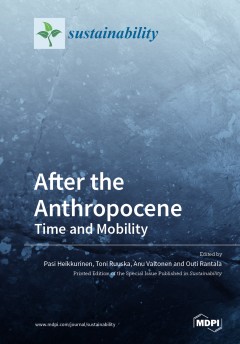
After the Anthropocene: Time and Mobility
- Edition
- -
- ISBN/ISSN
- 9783039369577
- Collation
- -
- Series Title
- -
- Call Number
- -
- Edition
- -
- ISBN/ISSN
- 9783039369577
- Collation
- -
- Series Title
- -
- Call Number
- -

A World You Do Not Know Settler Societies, Indigenous Peoples and the Attack…
A World You Do Not Know explores the wilful ignorance demonstrated by North America’s settlers in establishing their societies on lands already occupied by indigenous nations. Using the Innu of Labrador-Quebec as one powerful contemporary example, Colin Samson shows how the processes of displacement and assimilation today resemble those of the 19th century as the state and corporations scramb…
- Edition
- -
- ISBN/ISSN
- 9781912250394
- Collation
- oer.unej.ac.id
- Series Title
- Critical Human Rights Studies,
- Call Number
- University of London Press

Mining and indigenous livelihoods: rights, revenues, and resistance
The space left for indigenous peoples' voices in Canadian and Fennoscandian mining legal frameworks : a comparative analysis / Zoé Boirin-Fargues and Sophie Thériault -- Closure and connection : a Southwest Pacific reappraisal of the mining enclave / Pierre-Yves Le Meur and Glenn Banks -- Foreign investor accountability for the violation of indigenous peoples' rights in international invest…
- Edition
- -
- ISBN/ISSN
- 9781003406433
- Collation
- -
- Series Title
- -
- Call Number
- -
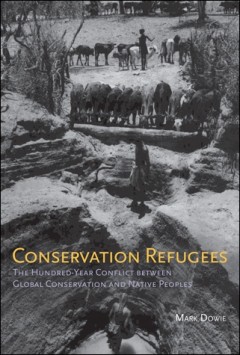
Conservation refugees The Hundred-Year Conflict between Global Conservation a…
How native people--from the Miwoks of Yosemite to the Maasai of eastern Africa--have been displaced from their lands in the name of conservation. Since 1900, more than 108,000 officially protected conservation areas have been established worldwide, largely at the urging of five international conservation organizations. About half of these areas were occupied or regularly used by indigenous peop…
- Edition
- -
- ISBN/ISSN
- -
- Collation
- 1 online resource (376 pages).
- Series Title
- -
- Call Number
- -
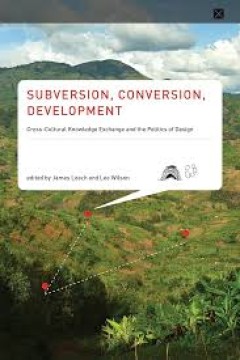
Subversion, conversion, development : cross-cultural knowledge exchange and t…
This volume explores alternative cultural encounters with and around information technologies, encounters that counter dominant, Western-oriented notions of media consumption. The contributors include media practices as forms of cultural resistance and subversion, 'DIY cultures', and other non-mainstream models of technology production and consumption. The contributors - leading thinkers in sci…
- Edition
- -
- ISBN/ISSN
- 9780262322492
- Collation
- 1 online resource (266 pages).
- Series Title
- -
- Call Number
- -
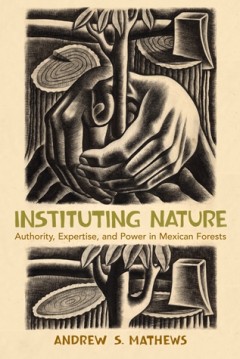
Instituting Nature: Authority, Expertise, and Power in Mexican Forests
Here, Mathews describes Mexico's efforts over the past hundred years to manage its forests through forestry science and biodiversity conservation. He shows that transparent knowledge was produced by encounters between the relatively weak forestry bureaucracy and the indigenous people who manage and own the pine forests of Mexico.OCLC-licensed vendor bibliographic record.
- Edition
- -
- ISBN/ISSN
- 9780262298537
- Collation
- 1 online resource (xii, 304 pages) :illustrations, maps.
- Series Title
- -
- Call Number
- -
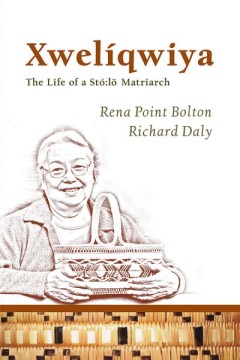
Xwelíqwiya the Life of a Stó:lō Matriarch
Xwelíqwiya is the life story of Rena Point Bolton, a Stó:lō matriarch, artist, and craftswoman. Proceeding by way of conversational vignettes, the beginning chapters recount Point Bolton’s early years on the banks of the Fraser River during the Depression. While at the time the Stó:lō, or Xwélmexw, as they call themselves today, kept secret their ways of life to avoid persecution by the…
- Edition
- -
- ISBN/ISSN
- 9781927356562.01
- Collation
- p. 312
- Series Title
- Our Lives: Diary, Memoir, and Letters
- Call Number
- 312 pages

Conservation refugees :the hundred-year conflict between global conservation …
How native people--from the Miwoks of Yosemite to the Maasai of eastern Africa--have been displaced from their lands in the name of conservation. Since 1900, more than 108,000 officially protected conservation areas have been established worldwide, largely at the urging of five international conservation organizations. About half of these areas were occupied or regularly used by indigenous peop…
- Edition
- -
- ISBN/ISSN
- 9780262322515
- Collation
- 1 online resource (376 pages).
- Series Title
- -
- Call Number
- -

Concrete Horizons: Romantic Irony in the Poetry of David Malouf and Samuel Wa…
Drawing on Bernd Mahr’s model theory, this volume introduces a new approach to Romanticism in contemporary Australian literature. Focusing on two very different authors, David Malouf and the Indigenous poet Samuel Wagan Watson, this book highlights their similarities rather than their differences. It is the first book-length study dedicated specifically to each author’s poetic oeuvre. Compr…
- Edition
- -
- ISBN/ISSN
- -
- Collation
- -
- Series Title
- -
- Call Number
- -
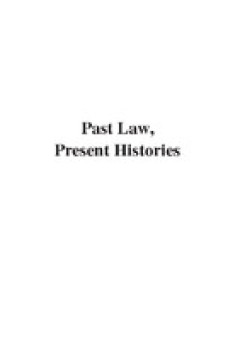
Past Law, Present Histories
This collection brings methods and questions from humanities, law and social sciences disciplines to examine different instances of lawmaking. Contributors explore the problematic of past law in present historical analysis across indigenous Australia and New Zealand, from post-Franco Spain to current international law and maritime regulation, from settler colonial humanitarian debates to effort…
- Edition
- -
- ISBN/ISSN
- -
- Collation
- -
- Series Title
- -
- Call Number
- -
 Computer Science, Information & General Works
Computer Science, Information & General Works  Philosophy & Psychology
Philosophy & Psychology  Religion
Religion  Social Sciences
Social Sciences  Language
Language  Pure Science
Pure Science  Applied Sciences
Applied Sciences  Art & Recreation
Art & Recreation  Literature
Literature  History & Geography
History & Geography